COVID-19
Liberals determined to reject rule of law after Emergencies Act ruling: Aaron Wudrick

From the MacDonald Laurier Institute
The government comforts itself in the fiction that the rules don’t apply to it
On Tuesday, The Federal Court of Canada released a decision that all Canadians should celebrate as an important victory for the rule of law in Canada.
In an application brought by two public interest law associations — the Canadian Constitution Foundation and the Canadian Civil Liberties Association — the court considered two questions. Whether the Trudeau government acted outside the law in invoking the Emergencies Act in February 2022 to put an end to the Freedom Convoy protests in Ottawa, and whether orders issued under the authority of the act violated the Charter. On both counts, the court answered unambiguously: yes, they did.
Perhaps the most striking thing about the court decision authored by Justice Richard Mosley is how straightforward much of the reasoning is. There is no tortured logic, no obscure line of argument, no abstract reasoning; the principles at stake are easily digestible by lawyers and non-lawyers alike. Justice Mosley does exactly what most Canadians probably expect courts to do: consider evidence; read what the law says; and draw conclusions that, for lack of a better phrase, reflect common sense.
Take for example the government’s insistence that the Freedom Convoy constituted a “threat to the security of Canada” — a phrase which is explicitly defined in the Emergencies Act as having the same meaning as it does in Section 2 of the Canadian Security Intelligence Service (CSIS) Act. Unfortunately for the government, CSIS’s official determination was that the convoy did not constitute a threat to the security of Canada. This being a very inconvenient obstacle for a government that wanted to invoke the act, Cabinet simply came up with a new strategy: ignore the statutory requirement that the Section 2 CSIS Act definition be met, come up with an alternative definition that better fits their argument, and make the opposite finding! QED.
Understandably, Justice Mosley had none of this. The law says what the law says. Perhaps, as has been argued elsewhere, using the CSIS Act definition of “threat to the security of Canada” is a poor fit for the Emergencies Act. If so, Parliament is well within its rights to amend it. But it’s not what the law said in February 2022, and Cabinet cannot simply wave away the words because it happens to be inconvenient for their best-laid plans.
On issue after issue — the scope of the security threat; the claim that enforcement tools under existing laws being exhausted; the reasonableness of sweeping violations of Charter rights of free expression and against unreasonable search and seizure — Justice Mosley, after looking at all the evidence, disagreed with the government’s assertions. The government’s claims simply did not survive contact with a fulsome evidentiary record.
Nor was the ruling only damning to the government’s flimsy arguments. It was also an implicit rebuke to Justice Paul Rouleau, the head of the Public Order Emergency Commission, who made the unnecessary and ill-advised choice in his final report to muse about the legality of the act’s invocation, in spite of the fact that — by his own admission — it was not part of his mandate to do so, and he had not undertaken a formal analysis.
Perhaps most interesting of all was Justice Mosley’s candid admission towards the end of his decision that he had initially “been leaning to the view that the decision to invoke the (Emergencies Act) was reasonable” and acknowledged that it was only after taking the time to “carefully deliberate about the evidence and submissions” and the applicants’ “informed legal argument” did he conclude — unambiguously — that the government had acted outside the law.
And what of the political fallout? There is a world in which a government might, when confronted with a court ruling that they illegally invoked and abused the most draconian law on the books, simply accept the ruling with humility, apologize unreservedly for having overstepped, and resign on principle.
Clearly, we don’t live in that world: unrepentant as ever, and within an hour of the decision’s release, Deputy Prime Minister Chrystia Freeland announced that the government would be appealing it. This is completely in character for a government that has time and again sneered at the rule of law — e.g. their ethics violations both big and small, the SNC-Lavalin scandal — preferring to comfort itself with fiction that rules are for other people.
Canadians know better. Governments are obliged to follow the law, just like everyone else — and we owe Justice Mosley a debt of gratitude for the timely reminder of that fact.
Aaron Wudrick is a lawyer and the domestic policy director at the Macdonald-Laurier Institute.
COVID-19
Elon Musk-backed doctor critical of COVID response vows appeal after court sides with medical board
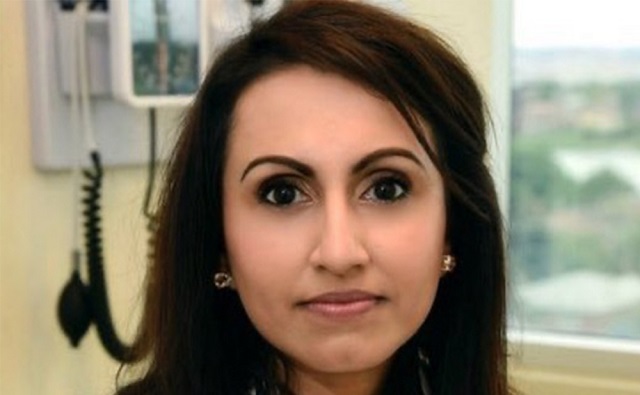
From LifeSiteNews
One of Gill’s “controversial” posts read, “If you have not yet figured out that we don’t need a vaccine, you are not paying attention. ”
A Canadian physician who challenged her medical regulator after it placed “cautions” against her for speaking out against draconian COVID mandates on social media has lost a court battle, but with the help of her Elon Musk-backed legal team she has vowed to appeal the ruling.
The case concerns Dr. Kulvinder Kaur Gill, an Ontario pediatrician who has been embroiled in a legal battle with the College of Physicians and Surgeons of Ontario (CPSO) for her anti-COVID views posted on X (formerly Twitter) in 2020. As reported by LifeSiteNews, her case received the support of billionaire Tesla and X owner Elon Musk, who pledged in March to back her financially.
One of Gill’s “controversial” posts read, “If you have not yet figured out that we don’t need a vaccine, you are not paying attention. #FactsNotFear.”
The Divisional Court decision against Gill dated May 7, 2024, concluded, “When the College chose to draw the line at those tweets which it found contained misinformation, it did so in a way which reasonably balanced Dr. Gill’s free speech rights with her professional responsibilities.”
“In other words, its response was proportionate,” noted the ruling.
Gill’s lawyer, Lisa Bildy with Libertas Law, stated in a press release sent to LifeSiteNews that the “Court declined to quash the ‘cautions’ orders, finding that the ‘screening committee’ of the CPSO was sufficiently alert to the Charter infringement of Dr. Gill’s speech, such that its decisions were within the range of reasonable outcomes.”
“Dr. Gill had argued, in two factums,” noted Bildy, which can be found here and here , and filed in the companion court applications, that “her statements were not ‘verifiably false.’”
Bildy expressed that Gill had provided the College with “ample evidence in 2020 to support her position against lockdowns,” but was sanctioned “because they went against the College’s guidance that doctors should not express opinions contradicting government or its public health edicts.”
Gill’s court challenge against the CPSO began last month, with Bildy writing at the time that the College’s “decisions were neither reasonable nor justified and they failed to engage with the central issues for which Dr. Gill was being cautioned.”
She argued that Gill had a “reasonable scientific basis” for her posts, noting that the previous decision made against Gill targeted her for opposing the mainstream COVID narrative.
“The decision starts with the premise that doctors have to comply,” said Bildy, warning that censoring doctors would have a “chilling effect” on free speech.
Bildy noted that in its ruling, the court “disagreed” with Gill’s challenge, “stating that this invited a reweighing of the evidence.”
The court also ordered that Gill pay the CPSO $6,000 in legal costs.
Gill is a specialist practicing in the Greater Toronto area, and has extensive experience and training in “pediatrics, and allergy and clinical immunology, including scientific research in microbiology, virology and vaccinology.”
Last September, disciplinary proceedings against her were withdrawn by the CPSO. However, last year, Gill was ordered to pay $1 million in legal costs after her libel suit was struck down.
The CPSO began disciplinary investigations against Gill in August 2020.
Gill to appeal recent court ruling with support from Musk’s X
The court’s ruling asserted that the CPSO panel members consisted of “three physicians with highly relevant expertise that they were able to bring to bear when assessing the scientific and medical information before them, expertise that this court does not have.”
Bildy noted that in fact, the CPSO panel consisted of “three surgeons and a general member of the public who had deferred to the ‘expertise’ of government’s public health arm.”
The court ruling also dismissed Gill’s arguments that publishing the “cautions on her public register and disseminating a notice about the cautions to hospitals and regulators across the continent was punitive and had a chilling effect on one side of a debate.”
“The Court opted to align with other Divisional Court decisions in stating that the cautions were not a finding of professional misconduct but were merely a remedial measure. This is despite the fact that cautions have, only in recent years, become a public rebuke rather than a private ‘correction’ of a professional by their peers. This significant change has not yet been grappled with by the Ontario Court of Appeal,” noted Bildy.
Bildy said that Gill intends to “seek leave to appeal to the Ontario Court of Appeal with the support of X Corp., since her posts were made on the X platform which supports free expression and dialogue, even on contentious issues and particularly on matters of scientific and medical importance.”
Gill noted on X Tuesday that her “notice of motion for leave to appeal will be filed” next week “to begin process.”
She also thanked Musk and X for supporting her legal cause.
Gill had said that she had “suddenly” found herself going “against the narrative,” and was then “seen as a black sheep and as someone who should be shunned.”
Many Canadian doctors who spoke out against COVID mandates and the experimental mRNA injections have been censured by their medical boards.
Earlier this month, Elon Musk’s X announced that it will fund the legal battle for another Canadian doctor critical of COVID lockdowns, Dr. Matthew Strauss, an Ontario critical care physician and professor, against his former employer Queen’s University after it forced him to resign.
In an interview with LifeSiteNews at its annual general meeting in July 2023 near Toronto, canceled doctors Mary O’Connor, Mark Trozzi, Chris Shoemaker, and Byram Bridle were asked to state their messages to the medical community regarding how they have had to fight censure because they have opinions contrary to the COVID mainstream narrative.
COVID-19
Healthcare workers obtain partial win against Bonnie Henry in BC Supreme Court
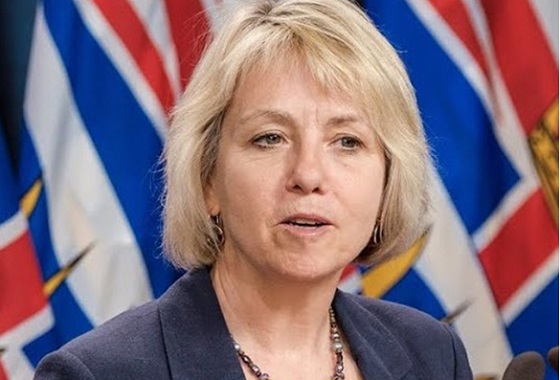
News release from the Justice Centre for Constitutional Freedoms
The Justice Centre for Constitutional Freedoms is pleased to announce that the British Columbia Supreme Court has remitted back to the provincial health officer the issue of whether remote working and administrative health care workers must take the Covid vaccine as a condition of being able to work in a health care system that the BC government claims is grossly understaffed.
While the Justice Centre is disappointed that the court upheld the Covid vaccine mandate on BC healthcare workers, this decision is viewed as a substantial win for those remote-working and administrative healthcare workers who lost their jobs due to an unfair Covid vaccine mandate and other Health Orders put in place by BC provincial health officer Bonnie Henry, starting in November 2021. The court’s decision was released on Friday, May 10, 2024, by Justice Simon Coval in Vancouver.
The Justice Centre provided for lawyers to represent the healthcare workers, who filed their Petition to the Court on March 16, 2022. Oral arguments were presented November 20 to December 1, 2023, and December 18 to December 21, 2023. The petitioners argued that the orders violated their Charter rights, section 2(a) freedom of conscience and religion, section 7 right to life, liberty and security of the person, and section 15 equality rights.
The case is formally known as Tatlock, Koop, et al. v. BC and Dr. Bonnie Henry. More background is available at this link.
Charlene Le Beau, co-counsel for the petitioners, says, “This case was a Judicial Review, which means the court had to determine whether Dr. Bonnie Henry acted reasonably in making the Covid vaccine a condition of employment. We are disappointed with the court finding that Dr. Henry acted reasonably, but pleased with the court also finding that the application of the Orders to remote-working and administrative workers went too far. As a result, the court remitted the issue back to Dr. Henry so that, in light of the reasons for judgment, she can consider whether to accept requests for exemption to the vaccine for those groups of workers. This is a positive result for BC nurses, doctors and other health care workers.”
-

 Uncategorized2 days ago
Uncategorized2 days agoRCMP recruitment failure has Alberta advocacy group calling for Provincial Police Service
-

 Automotive22 hours ago
Automotive22 hours agoGovernments in Canada accelerate EV ‘investments’ as automakers reverse course
-

 COVID-191 day ago
COVID-191 day agoJapan’s most senior cancer doctor: COVID shots are ‘essentially murder’
-

 Economy1 day ago
Economy1 day agoBiden signs suicidal ‘No Coal’ pact, while rest of world builds 1,000 new plants
-
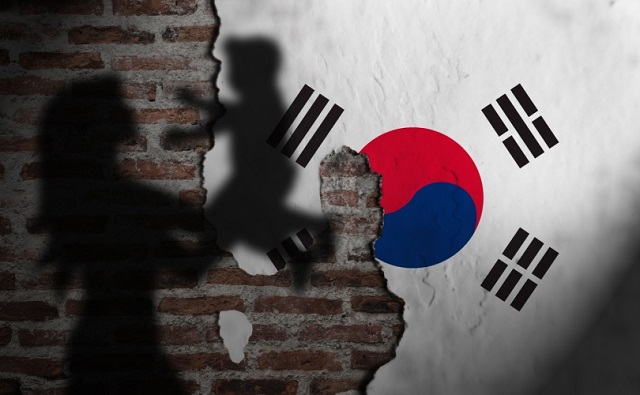
 Health15 hours ago
Health15 hours agoSouth Korean president declares low birth rate a ‘national emergency,’ plans new ministry to address it
-
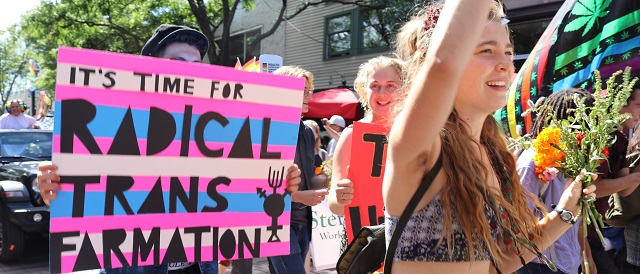
 Health2 days ago
Health2 days agoPrivate Footage Reveals Leading Medical Org’s Efforts To ‘Normalize’ Gender Ideology
-
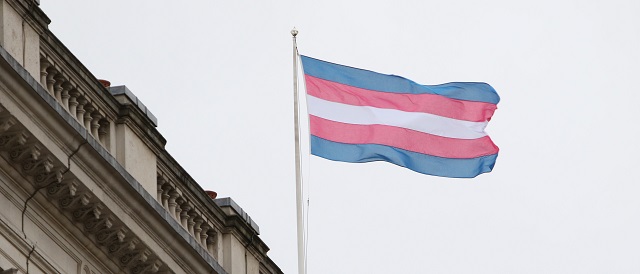
 Health2 days ago
Health2 days agoTHE WPATH TAPES: Behind-The-Scenes Recordings Reveal What Top Gender Doctors Really Think About Sex Change Procedures
-
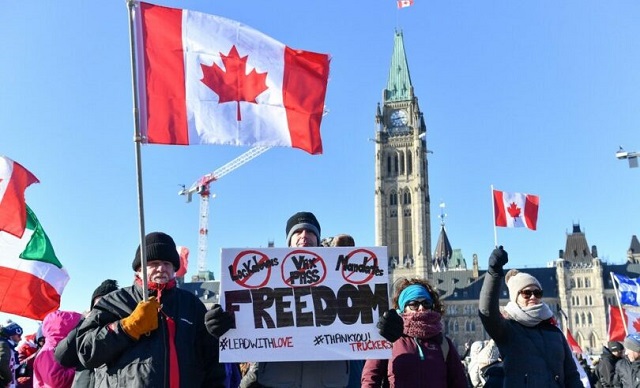
 COVID-192 days ago
COVID-192 days agoTrudeau government only sought legal advice after Emergencies Act was invoked, records indicate








